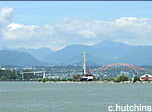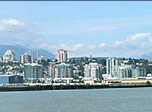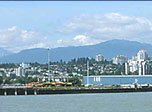I have delayed comment on Iran, midst our sorrow over the lost lives of the airline tragedy. It is easy to respond quickly with pronouncements. However, I am mindful of the long road of history that brought us to the present political contest with Iran. Today, Iran is an Islamic religious dictatorship.
We recall that Islam has been in conflict with other nations and political powers since its beginning with Mahammad (570–632). Islam arose from various streams of superstition and religious practice, and after Mahammad, there was much violence over succession and control. Assassinations and war devolved into many religious factions and varied governing Caliphates. There have been more than a dozen Caliphates that emerged after Mahammad, all of which involved violent conflict.
In the West in recent times, perhaps since the creation of the United Nations, response to the Islamic challenge has been in political and military terms. However, it is inadequate, because the nature of Islamic conquest and subjugation of peoples is “spiritual” as well as “carnal territorial destiny”. Iranian religion and politics must have a religious and political response.
Islam's central idea is a universal political religion. Islam envisages a global political order in which all humankind will someday live under Muslim rule, as either believers or subject communities. To achieve this goal, it is incumbent on all free, male, adult Muslims to carry out an uncompromising struggle "in the path of Allah", or jihad. This in turn, makes those parts of the world that have not yet been conquered by the House of Islam, an abode of permanent conflict (Dar al-Harb, the "house of war") which will only end with Islam's eventual triumph.
In the early 21st century, following the failure of the Arab Spring and defeat of the latest self-proclaimed "Islamic State", there seems to be an embrace of collective Muslim identity by young Muslims with the ephemeral appeal of another Caliphate as an idealized future Muslim state.
If we understand the ideological core of Iran and its sense of place in this world, then we can understand why its exports war into the west through terrorist agencies. The ideology of the Iranian Revolution has been called a complex combination of nationalism, and Shia Islamic religious radicalism.
The Islamic Republic of Iran is fundamentally a religious regime with the goal of establishing an Islamist world empire. The mythology of this regime’s ideology requires the existence of the forces of “good” and “evil” along a rigidly drawn line. The regime regards itself and its allies as good, and the West in general as evil. For the existence of the regime to have any meaning at all, this myth must survive.
Iran is relentless. It will do or say anything to promote itself, and their quest for nuclear weapons then is understandable; they have no restraining ideology not to use them. Iran will make international deals and promises, but as soon as the Regime sees an opportunity, it will break promises and again push forward its aggressive ideology. A notorious example was the trick that the regime pulled on President Barack Obama immediately after the signing of the nuclear deal. On the day President Obama was delivering the 2016 State of the Union address, the Islamic Revolutionary Guard Corps detained some US Marines in the Persian Gulf, publicly parading their capture. The large mural of that disgraceful event was on display in Valiasr Square in Tehran. Iran also secretly cheated on the main points of the nuclear deal, which then led to Trump’s decisions.
More recently, while teetering on the verge of economic collapse under unprecedented international sanctions for its pursuit of nuclear weapons and interventionism in the Middle East, Tehran upped the ante by shooting down a multi-million-dollar American drone over the Persian Gulf. Surprisingly, it managed to get away with it. The regime also stands accused of the September missile attacks on the Saudi Aramco oil facilities in eastern Saudi Arabia that disabled 50% of Saudi output and disrupted the global oil supply. It is inconceivable that the deadly interception of Ukraine International Airlines Flight 752 was accidental.
What is of primary importance to the Islamic Republic is the maintenance of the mythological system that it has created for itself. Western politicians, who are secular pragmatists, have let the regime get away with impunity. The West's character of "freedom of religion" and secular institutions, make it impotent to include a religious response to Iran.
For the Islamic Republic not to be able to continue this game of cat and mouse with the West, it must once and for all be rid of its ideological footing. Therefore, if President Donald Trump's administration genuinely means to change the behavior of the regime in Iran, then it must force the Ayatollahs and their Revolutionary Guards to accept their defeat before the eyes of the world. The fall of an ideological regime starts with the collapse of its fundamental myths. A central one is that their Islamic political system from the years of the 600's, has any relevance or utility for societies in a modern world.
CBC has been promoting the idea that Trudeau should fulfill his earlier musings that Canada should have some diplomatic official contact with Iran, even if it is not full Ambassadorships, such as a Consular Business Office in Tehran. However, my Iranian friends tell me that amidst legitimate demands for Consular Services including business travel, seeing loved-ones, and facilitating the repatriation of the dead from the airline crash, it should not happen. Iran would consider such a request as an opening for their illegitimate activities again. They would see this as a failure of Canadian foreign policy and they would not legitimately behave with fair reciprocity. A Consular Office exchange would open up a pandora box of infiltration of our democratic institutions. Over the years, so-called "diplomats" of the Iranian regime have been caught in terrorist activities, expelled in some cases, and engaged in money-laundering. The Iranian Embassy in Ottawa was a spy base.
Canadian Iranians say that we must push and demand that Canada lists the IRGC as a terrorist entity, not for political posture, but because they are terrorists in belief and behaviour. Conservatives presented a motion in June 2018 to that end. Conservative and Liberal Parliamentarians joined forces to support a private member's motion presented by a Conservative MP that condemns Iranian-backed terrorism directed against Israel and which calls on the Canadian government to "immediately cease any and all negotiations or discussions with the Islamic Republic of Iran to restore diplomatic relations". The motion demands the release of Canadians held in Iran while recognizing the Iranian people's fundamental rights to freedom of conscience and religion. The motion also called for the immediate designation of the Islamic Revolutionary Guard Corps as a listed terrorist entity under the Criminal Code. Strangely enough, the Liberals including Prime Minister voted in favour, but nothing has happened since.
Canada must re-think its foreign policy for special cases like Iran. The usual accepted diplomatic dance in the realm of secular politics does not work with a fanatical religious dictatorship.
My thanks to many sources that are quoted without attribution in this opinion piece, as they are too many to list. Sentences have been liberally lifted from multiplied internet research documents.










1 comment:
The regime is more dangerous to the world than people realize. Lying and treaty breaking is basic to their character.
Post a Comment